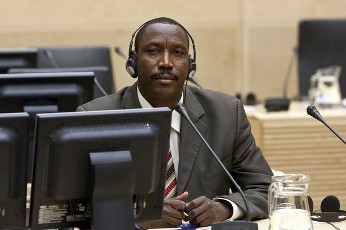Darfur’s LJM sacks its secretary-general Abu Garda
January 17, 2015 (KHARTOUM) – Differences within the former rebel Liberation and Justice Movement (LJM) have escalated following the decision of the movement’s leader, al-Tijani al-Sissi, to dismiss the secretary-general, Bahar Idriss Abu Garada.

The differences between the two leaders emerged over the implementation of security arrangements but now reached the implementation of the Doha Document for Peace in Darfur (DDPD) as the two sides accuse each other of failing or hindering its implementation.
LJM spokesperson, Ahmed Fadl, said the presidential council, in a meeting chaired by al-Sissi, listened to the report of a fact-finding committee formed to investigate violations of the secretary general, noting the committee recommended relieving him of his position.
He disclosed the meeting of the presidential council approved the recommendation of the committee, saying LJM chairman issued a decision relieving Abu Garada of his position.
But the chairman of LJM revolutionary council, Bakheet Ismail Dahia, denied on Saturday issuance of a decision relieving Abu Garada of his position, saying to Sudan Tribune that the revolutionary council is the only body who has the right to dismiss LJM members.
“The revolutionary council is the legal body [which has the right] for supervision and accountability [within the LJM] and it has not formed any committee to investigate [violations] by Abu Garada or anyone else,” he added.
He stressed the presidential council does not have the powers to dismiss any LJM member let alone sacking of the secretary general. He further said the council has not held a meeting in the first place because 7 out of its 11 members were not present in the capital, Khartoum.
Dahia said the abovementioned meeting which decided to dismiss Abu Garda was attended by three people including al-Sissi, Mukhtar Abdel-Karim and Abu al-Abas.
“The three people were not part of the revolution but joined it at a later stage from the civil society,” he said.
He described al-Sissi’s statements about dismissal of Abu Garada as an attempt to create “media confusion” after the latter informed the registrar of political parties about arrangements to transform LJM into a political party.
He pointed the registrar accepted LJM registration documents their faction had presented, saying the official transformation of the movement into political party will be declared after the general convention which will be held by the end of this month.
Dahia added that al-Sissi’s group had submitted the same request to the registrar but he denied it due to similarity of names, saying they were forced to register their party under the name of the “National Liberation and Justice Party”.
He said al-Sissi and his group were disturbed by the actions of the secretary general to transform the movement into political party because they fear of losing their positions in the Darfur Regional Authority (DRA) and the federal government.
“Al-Sissi has proven that he is incapable of chairing the movement and those who are supporting him know that transformation of the movement into political party threatens their positions at the DRA and government ministries. They seek to divide the movement in order to keep their positions after the elections and that is why they are creating much fanfare,” he added.
Dahia also accused al-Sissi of ignoring LJM institutions throughout the past four years, saying he has not visited the movement’s headquarters in any of Darfur states besides visiting its headquarters in Khartoum once in four years.
“He [al-Sissi] knows that if he takes part in the general convention, he will not be elected as chairman and we cannot convince our party bases to reinstate him,” he said.
LJM is a coalition of breakaway groups from Darfur historical two rebel groups, Sudan Liberation Movement (SLM) and Justice and Equality Movement (JEM). The group formation was supported by the international community in a bid to have an inclusive process in Doha.
Sissi who was a UN official was chosen to lead the group because he belongs to an influential family in the Fur tribe, but he has no armed group. However, based on his tribal and international support he managed to control the group and get rid of possible rivals.
Abu Garda, a member of the Zaghawa tribe, was the former secretary general of the Justice and Equality Movement. In May 2009, formed the United Resistance Front (URF) after his split from JEM in 2008.
The ruling National Congress Party (NCP) seemingly remains unperturbed by the rift as long as the two factions are committed to the DDRD implementation.
(ST)
